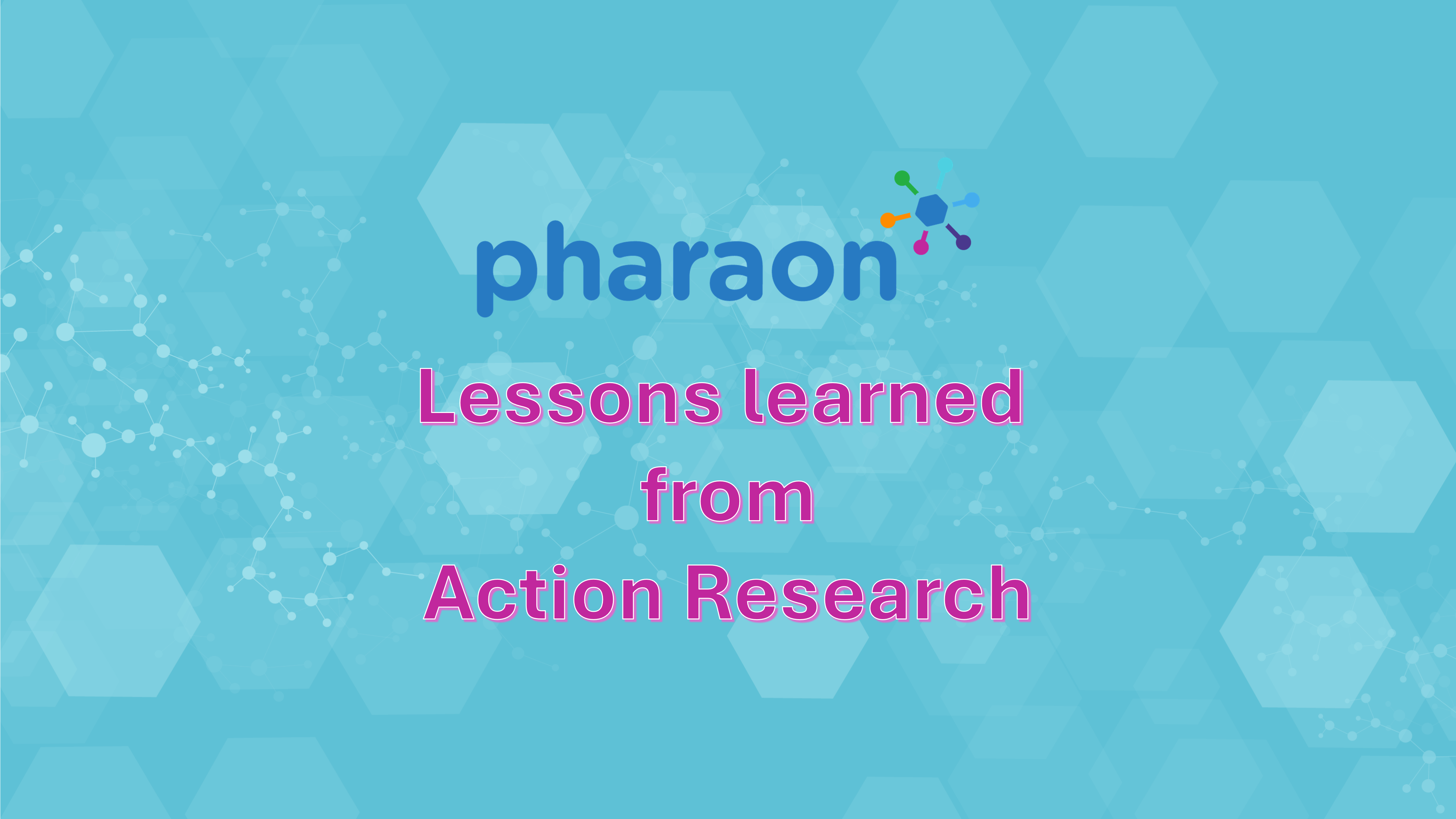
10 May Lessons learned from Action Research
The work in the Pharaon pilots was conducted according to the principles of Action Research. This approach focuses on the active involvement of all relevant stakeholders in the research process, and works in an iterative way of planning, action and (collaborative) reflection. Through these collaborative reflections, a number of lessons were learned on the coordination and large-scale pilot level:
- Sharing experiences (positive and negative) allows pilots to learn from each other and feel that they are not the only ones who struggle.
- It is interesting to see how the same technology is used and received differently in the different pilots, allowing for comparisons.
- Start from a detailed needs assessment instead of technology driven projects.
- Providing learning materials and sessions about new methodology like Action Research in the starting phase gets everybody on the same page and provides a good basis.
- Prepare mitigations plans for the (planning of the) deployment of pilots, as the many actors and different variables can make the process complex.
- Performing Action Research next to existing work, especially in the case of healthcare professionals who already face a high workload, requires patience and room to learn and grow. Pilot coordinators need to provide this, and support the team where possible.
The pilots faced several challenges, some of which were related to the specific pilot while others were shared (e.g., difficulties regarding recruitment and retention of participants, low use of technology). From these challenges, they drew lessons learned:
- Current funding is less applicable for Action Research, where the project should be defined with stakeholders, and ideally come from within a community
- Ethical approval processes vary greatly per country, and it can be tedious to prepare several requests for the same research in different countries
- Year long evaluation (as described in MAFEIP) is perceived as too long, especially by participants
- There are basic problems like digital literacy that need to be solved before projects like this can truly succeed
- Having regular meetings (whether weekly, bi-weekly or monthly) with the partners in the pilot helps everybody to stay involved and up to date
- Projects should not try to replicate services that are out there and easily accessible, like WhatsApp
- Technologies that require lower effort from the user will engage them more, on the other hand, technologies that require a lot of effort will likely be used less
- Training should be continuously provided through different modalities (in person, via booklets, videos etc.)
- Relatedly, continuous support should be available for users, for example via a helpdesk that they can reach through e-mail or phone
- When recruiting, the added value of investing in additional sites should be weighed against the significant effort that this requires
- Roles of all partners should be clearly defined, and strong leadership is needed to coordinate the pilot
- Having a clear repository and document structure, for example with a master document that links to other documents, helps create an overview for all partners
- It is crucial for the success of a project to truly involve stakeholders from the context (local healthcare professionals, “champions”)
- Long lists of complicated standardised questionnaires are a barrier for participants, and may even lead them to drop out of a study. Questionnaires should therefore be pilot tested with the target group, and adjusted according to their feedback.

